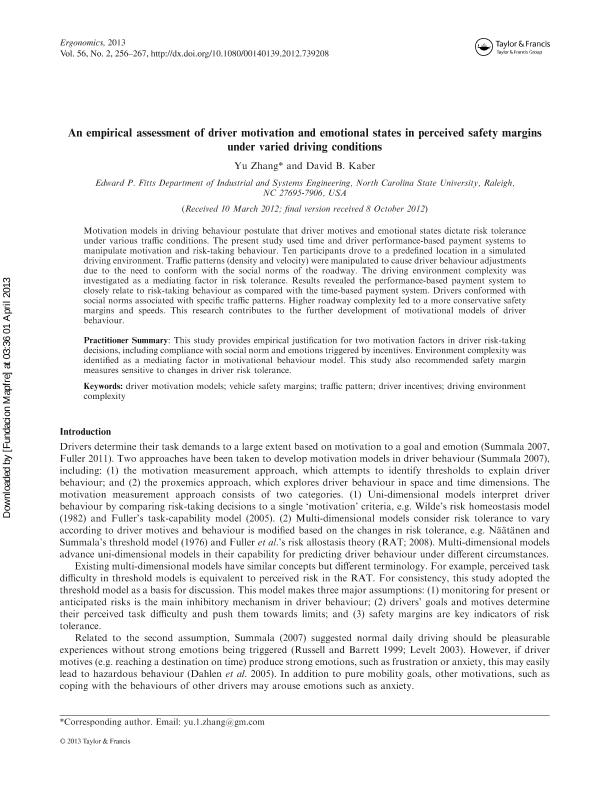An Empirical assessment of driver motivation and emotional states in perceived safety margins under varied driving conditions

Contenido multimedia no disponible por derechos de autor o por acceso restringido. Contacte con la institución para más información.
| Tag | 1 | 2 | Valor |
|---|---|---|---|
| LDR | 00000cab a2200000 4500 | ||
| 001 | MAP20130010809 | ||
| 003 | MAP | ||
| 005 | 20130401175652.0 | ||
| 008 | 130401e20130204esp|||p |0|||b|spa d | ||
| 040 | $aMAP$bspa$dMAP | ||
| 084 | $a875 | ||
| 100 | 1 | $0MAPA20130004235$aZhang, Yu | |
| 245 | 1 | 3 | $aAn Empirical assessment of driver motivation and emotional states in perceived safety margins under varied driving conditions$cYu Zhang, David B. Kaber |
| 520 | $aMotivation models in driving behaviour postulate that driver motives and emotional states dictate risk tolerance under various traffic conditions. The present study used time and driver performance-based payment systems to manipulate motivation and risk-taking behaviour. Ten participants drove to a predefined location in a simulated driving environment. Traffic patterns (density and velocity) were manipulated to cause driver behaviour adjustments due to the need to conform with the social norms of the roadway. The driving environment complexity was investigated as a mediating factor in risk tolerance. Results revealed the performance-based payment system to closely relate to risk-taking behaviour as compared with the time-based payment system. Drivers conformed with social norms associated with specific traffic patterns. Higher roadway complexity led to a more conservative safety margins and speeds. This research contributes to the further development of motivational models of driver behaviour. | ||
| 773 | 0 | $wMAP20100019818$tErgonomics : the international journal of research and practice in human factors and ergonomics$dOxon [United Kingdom] : Taylor & Francis, 2010-$x0014-0139$g04/02/2013 Volumen 56 Número 2 - febrero 2013 , p. 256-267 |

